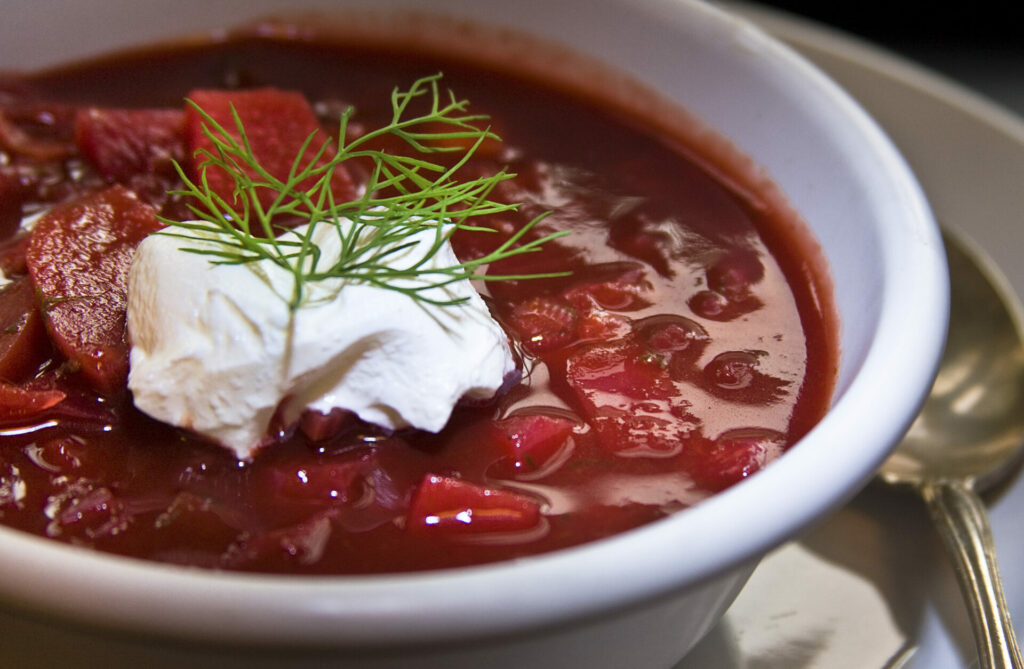Ukraine’s national dish, borscht, has been included on a UNESCO list of intangible cultural heritage in danger, the organisation decided on Friday. The traditional Ukrainian soup, made from beetroot, potato, vegetables and sometimes meat, is also claimed by Russia.
Russia’s invasion is actively threatening Ukrainian culture and risks destroying some of the dish’s traditions.
“The existence of this soup… is not in danger in itself, but it is the human and living heritage associated with borscht that is in immediate danger. This seriously disrupts the capacity of Ukrainians to practise and transmit their intangible cultural heritage," said Pier Luigi Petrilloo, rapporteur for the evaluation committee responsible for the case.
In Mid-April, Ukraine had requested this status due to undergoing threats to Ukrainian families and livelihoods caused by bombing and Russian attacks.
The announcement comes as part of the wider “Borscht War” between Ukraine and Russia. Both nations claim it as their national dish and it is enjoyed across the post-Soviet world. More than just an argument over soup, borscht has become an analogy for culture outside of the Russian sphere and the desire to break free from Russian influence. UNESCO has sided with Ukraine in this conflict, now explicitly stating that borscht is part of Ukrainian culture.
Related News
- Belgium no longer issues short-term visas to Russian nationals
- ‘Moralwashing’: Major companies fail to leave Russian market
Maria Zakharova, Putin propagandist and spokesperson for the Russian Ministry of Foreign Affairs reacted angrily to the press in April over the borscht war, suggesting that Ukraine was attempting to steal shared culture.
“Even cookbooks have been banned (in Ukraine!) Why? Because you couldn’t share borscht! You couldn’t share it! It had to belong to just one group… only one nationality… Xenophobia! Nazism!”
In a post on Telegram, Ukraine’s Culture Minister Oleksandr Tkathenko claimed victory in the borscht war against Russia, saying that Ukraine will soon share its beetroot soup with countries across the world “and even non-civilized ones, so that they have at least something light, tasty, and Ukrainian to eat.”

